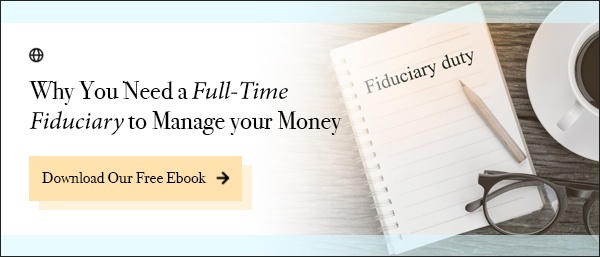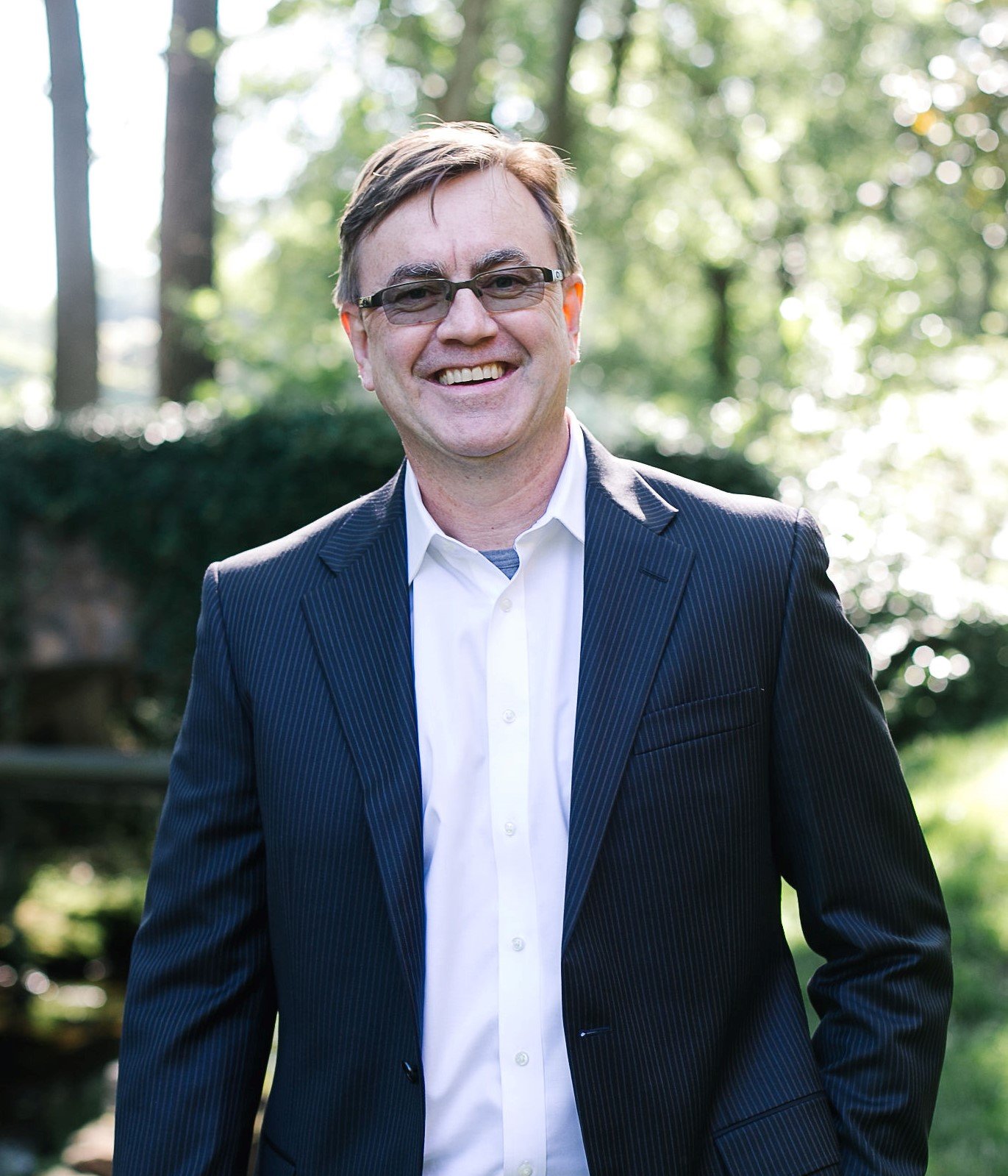Typically, the worst regret a person has on their death bed is not that they didn’t have more stuff, but that they spent so much of their life worrying. I know I can’t get rid of all your worries, but I can try to get rid of the monkeys on your back that keep you from reaching your goals. When it comes to investing, the only way to do this is by working with fee only financial planners.
Monkey #1: Conflicts of Interest
When deciding to work with a financial planner, it’s important that he or she does not accept payment from anyone but you. Not from insurance firms, securities firms, banks, investment companies or mutual funds. A good financial planner should solely be paid by you. The only way you know this is happening is if your planner is a fee-only fiduciary.
A fiduciary must put his or her client’s interests first. Not a stockholder’s or fellow company’s.
There are basically 4 different firms that provide investment advice:
- Investment advisory firms, which are Registered Investment Advisors (RIAs)
- Brokerage firms
- Insurance firms
- Banks
Of these, only RIAs are treated as fiduciaries.
The problem is that rarely does an investor work with a firm that is solely an RIA. Most investors work with an advisor who can also be paid brokerage and insurance commissions, so there are conflicts of interests. These advisors use terms like “fee-based,” which only means that the advisor can be paid by a combination of commissions and fees – that doesn’t mean much.
Fee-only is better, but it is also often misused. Fee-only is relevant only when an advisor is a fiduciary and a Certified Financial Planner (CFP).
This is a problem because so many insurance agents are selling “magical products” that are “risk-free.” We have seen dozens of clients be sold insurance by so-called advisors even in the last year. It’s important to do your homework. Please make 100 percent sure that your advisor is working in your best interest in all aspects of your relationship.
Monkey #2: Investment
I believe that all of my clients should invest like the masters. A great advisor will invest alongside you, and therefore, has skin in the game.
Want to talk to a true fee-only fiduciary? Contact Global View to see how we can help.
Monkey #3: Performance Chasing and Returns
When choosing an advisor, find someone who will really get to know you and understand your situation. An advisor must understand how you’re suited to invest if they want to coach you to the expected volatility you will receive based on your goals and your exposure to risk.
Monkey #4: Choices
When you find an advisor you can trust, you can let him or her make the important decisions for you: Where to save, where to get rid of debt, how much to save, when to retire, when to take Social Security, etc.
Most investors realize they need advice on investments and important life choices, like when to retire. However, depending on what “expert” you ask, you’ll likely get a different answer. The main problem is that everybody has a conflict of interest, so you need to figure out what the expert’s conflict is before you take their advice. Then you can decide whether they are indeed an expert you can trust.
Let’s take a look at 4 types of experts:
- The low-cost indexer
The low-cost indexer will tell you to invest in a low-cost index of stocks. This is a very risky strategy because many of these indexes are market-cap weighted. These indexes tend to do very well in boom years and very poorly in bust years. There are two occasions in the last 15 years where you could’ve lost half of your money. Even worse, it could take five to 11 years to recover. There are better ways to invest that maybe lower risk and give better returns for the risk.
- The suits – insurance firms, banks and brokerage firms
The problem with the suits is they explicitly put their interests before yours. Can anyone say Wall Street?
- The financial thought-feeders
There are many gurus who have advice on where you should invest and how to make sure you won’t run out of money in retirement. We respect these thought leaders on their area of expertise, but remember, they’re paid a lot of money for recommending advisors, and they’ll always be putting their interests first.
- Educated, certified and documented fee-only financial fiduciaries
Fee-only financial fiduciaries who can prove their expertise are the only experts you can really trust. This designation requires advisors to continue to educate themselves and earn new qualifications to ensure they’re the best at what they do and can offer their clients the highest form of financial planning available. In an industry full of conflicts of interest, the right certifications and designations really do carry a lot of weight.
Joey Hines – Your Retirement Transition Specialist
I see far too many financial horror stories to take my role as a fiduciary lightly. As does the rest of the Global View team.
Most recently, this promise to excellence earned our own CFP, Partner and Retirement Specialist Joey Hines the designation of Chartered Retirement Planning Counselor (CRPC).
A CRPC is an expert in retirement planning. This designation requires six to eight weeks of graduate-level training exclusively in retirement planning, with focuses in estate planning and asset management investments. The curriculum teaches candidates how to assess a client’s long-term planning situation and needs, and then evaluate retirement options and make appropriate recommendations.
In a world full of conflicts of interests, where salespeople pose as financial experts and sell a product that, in the end, benefits the salesperson and not the client, this kind of education is invaluable.
Joey completed the specialized program and passed a rigorous examination. He also signed a code of professional ethics and completed a disclosure form attesting his professional conduct. He must also commit to ongoing continuing education to ensure he receives up-to-date information about current issues impacting the area of retirement planning.
This was a no-brainer for Joey, who entered the financial advisory business in 1996. A graduate of the University of South Carolina with a bachelor’s degree in economics and finance, Joey began his career at Merrill Lynch.
Since joining Global View, Joey has helped thousands of clients transition into a comfortable retirement. He leads clients through a goal-setting process, implementing financial plans and gaining an understanding of estate planning and charitable giving.
I’ll say it again: The financial services industry is a confusopoly – the industry purposely confuses investors for personal gain. When it comes to finding someone to trust with your hard-earned wealth and financial security, it only makes sense to work with the best.
We know how hard it is to build your wealth. And we want to make sure you keep it; not give it away to a slick salesperson with a strong sales pitch.
Once you’ve got all of the worry monkeys off your back, you’ll be able to enjoy a comfortable and worry-free retirement.
And remember, when you hire Global View, you get access to the knowledge of all of our experts in investment and financial planning. We even have an accountant and estate attorney on staff!





.jpeg)


.jpeg)


